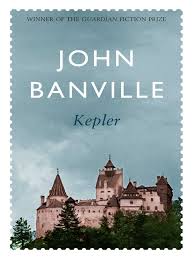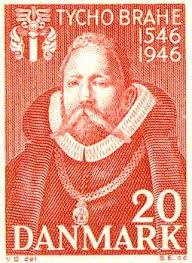A novel with that super nerd Johannes Kepler in the leading role. It is part of a series of such eponymous works by the tireless John Banville, on whom there will be more later.

The young Kepler, having exhausted alternatives, goes to work for the great Dane Tycho Brahe who is sustained by that screwball emperor of the vestigial Holy Roman Empire, Rudolph II in Prague (been there). In so doing Kepler’s backstory unfolds in several flashbacks.
Kepler is a teacher whose tenure is precarious in a world still riven by the Great Schism and where schools exist at the whim of the local grandee. He marries largely for the dowry which is quickly spent on an inadequate model of the planets. His wife Barbara is seen only through his eyes as part whore and part harridan.
Brahe is a remote and glacial figure who treats Kepler as an underling, not a colleague. Tyco is moody, vague, and irascible by turns. Hardly the ideal patron, but Kepler has no alternative but to bear it. Rudolph is seldom seen, and exercises no influence, it seems. He just lets Brahe get on with it.

The atmosphere is laid on by the cement mixer load and gets in the way of both the plot, if there is one, and character development, if there is any.
The author tries too hard to create a foreign world by reaching for the dictionary and using as many an arcane words as possible each of which distracted my attention as I looked each of them up. Moreover, I soon lost patience with Kepler’s tongue-tied ineptitude. He blunders about like one of the Stooges alienating even his supporters. Now that may been historically accurate portrayal, but it does not inform, entertain, or enlighten a reader.
When he is offered the chance to explain his system to a patron (and thereby to the reader), he does not seem to know what to say and starts with the most minute details, quickly boring the auditor, and this reader, too. It is as though Kepler does not know the point either. I wondered if Banville was trying to show this as an example of pure research scoffed at by practical people, but if so, it fails. All I got was the urge to shake Johannes and tell him to get to the point, whatever it is.
Towards the middle of the book one finds a series of letters written by Kepler and the man revealed in these letters is not the bumbling oaf of the preceding pages. The letters are succinct, clear, and revealing. I do not know (yet) if they are real or imagined, but they are a relief of the clown Kepler of the earlier pages. Then in the last third we have Kepler again, not quite as bumbling and irritating. There is no explanation for the insertion of the letters and no indication at the end about their veracity. While there is an end note that mentions a biography of Kepler there is nary a word to explain Banville’s caricature.
 John Banville is a one-man industry with scores of books to his credit under a phalanx of pseudonyms, or so it seems. He writes contemporary novels, mostly set in Ireland under his own name, krimis featuring Dr Quirk under another name, still others as Benjamin Black, and this series of biographical novels about great scientists. It must be in the blood since his brother Vincent is also a busy author-bee, too. Sadly nothing in this book motivates me to read another.
John Banville is a one-man industry with scores of books to his credit under a phalanx of pseudonyms, or so it seems. He writes contemporary novels, mostly set in Ireland under his own name, krimis featuring Dr Quirk under another name, still others as Benjamin Black, and this series of biographical novels about great scientists. It must be in the blood since his brother Vincent is also a busy author-bee, too. Sadly nothing in this book motivates me to read another.
There was some added interest in that much of the novel takes place in Prague on that hill, which we visited in 2014. We walked through some of the rooms where Kepler worked. Moreover, that odd specimen Rudolph II, Holy Roman Emperor, is a character. This Rudolph sponsored all manner of invention and science. There is an excellent account of him in an ‘In Our Time’ episode from Lord Bragg. I have not been able to locate a biography of Rudi.
Skip to content
